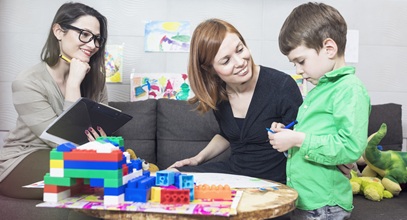As humans, social interaction is essential to every aspect of our health. Research shows that having a strong network of support or strong community bonds fosters both emotional and physical health and is an important component of adult life. Over the years, there have been a number of studies showcasing the relationship between social support and the quality of physical and psychological health.
The Research
While most studies examining the benefits of social support have focused on the elderly (Steptoe, Dockray, & Wardle, 2009), having a strong social network is crucial for psychological and physical health, regardless of age. For example, a study on incoming college freshmen found that social support was effective in reducing depression in both those who have healthy self-esteem and those with a poor self-image (Cohen, Sherrod, & Clark, 1986). The authors of this study found that belonging to a social network helped ease the stress for people entering university life.
Social involvement is also important as we age. In a study of Europeans over the age of 50, Sirven and Debrand (2008) found that individuals who participated in social or community activities were more likely to report good or very good health. The study was based on data from the Survey of Health, Aging and Retirement in Europe (SHARE) and included 11 European countries and 22,000 households (31,000 individuals).
What We Think
At South University, we hope that you learn from these studies and continue to build the support networks in your lives. In addition to the psychological and physical benefits of having a support system, having friends and family who know about your academic and professional goals may help you to achieve them. The support and encouragement from your friends and family will motivate you, and you can ask them to check in regularly on how you are doing in classes. Because they believe in you and because you see them so often, you won’t want to disappoint them. Plus, they’ll be excited to hear about your success!
For the last week of the Student Hero Contest, we hope you continue to network with other students online and also start talking with your family and friends about your online education experiences. If your hero is a family member or a friend you see every day rather than a student, we encourage you to still enter the contest and tell us about why he or she is so important to you!
Sources
Cohen, S., Sherrod, D. R., & Clark, M. S. (1986). Social Skills and the Stress-Protective Role of Social Support. Journal of Personality and Social Psychology, 50(5), 963-973.
Sirven, N., & Debrand, T. (2008). Social participation and healthy ageing: An international comparison using SHARE data. Social Science & Medicine, 67, 2017-2026.
Steptoe, A., Dockray, S., & Wardle, J. (2009). Positive Affect and Psychobiological Processes Relevant to Health. Journal of Personality, 77(6), 1747-1776.
Walen, H. R., & Lachman, M. E. (2000). Social Support and Strain from Partner, Family, and Friends: Costs and Benefits for Men and Women in Adulthood. Journal of Social and Personal Relationships, 17, 5-30.




